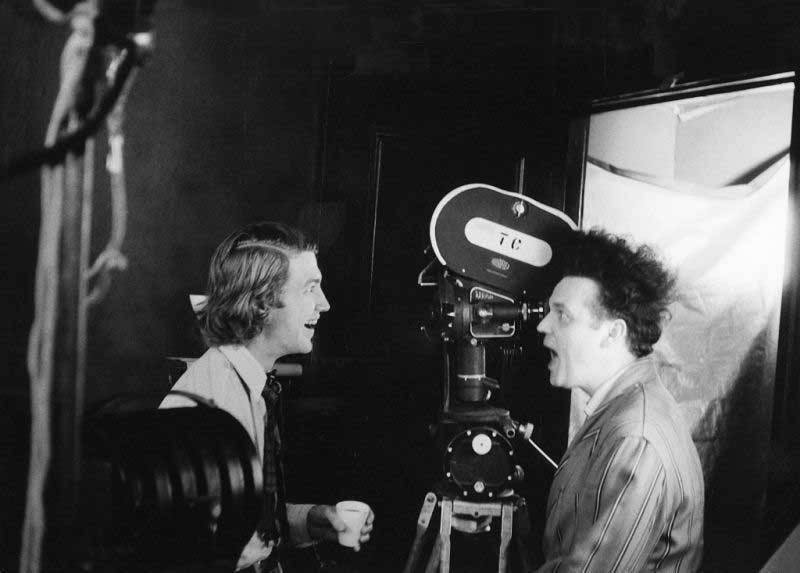by Carter May 18,2025
In the pilot episode of Twin Peaks, David Lynch masterfully captures the mundane rhythm of daily life in a high school. A student sneaks a cigarette, another is summoned to the principal's office, and attendance is taken in a classroom. This tranquility is shattered when a police officer enters and whispers to the teacher. A scream pierces the air, and through the window, a student is seen running across the courtyard. The teacher struggles to hold back tears, bracing for an announcement. Lynch's camera then focuses on an empty seat in the classroom, as two students exchange a knowing glance, realizing their friend Laura Palmer is no longer with them.
David Lynch has always excelled at capturing the surface details of life, yet he persistently delves deeper, revealing an unsettling undercurrent. This scene from Twin Peaks encapsulates the essence of his career—a seamless blend of the ordinary and the eerie. Yet, it's not the only defining moment in Lynch's oeuvre. His extensive body of work, spanning over four decades, offers a plethora of scenes that resonate uniquely with each fan. The term 'Lynchian' embodies this elusive, dreamlike quality that has cemented his legendary status. The difficulty in accepting his passing lies in the fact that he had a singular voice, yet his appeal varied widely among his audience.
Lynch's influence is so profound that it has earned him a place among the rare few who have inspired a new adjective. Unlike terms like "Spielbergian" or "Scorsese-ish," which denote specific stylistic elements, "Lynchian" captures a broader, more unsettling feeling akin to "Kafkaesque." This term reflects the pervasive sense of unease and disorientation that permeates his work.
For many budding film enthusiasts, watching Eraserhead was a rite of passage. Scott's teenage son, years later, embarked on this journey himself, even binging Twin Peaks with his girlfriend during the Windom Earle era of Season 2. Lynch's work possesses a timeless quality, as evidenced by Twin Peaks: The Return in 2017, where a child's bedroom evokes the 1950s, complete with cowboy trimmings—a nod to Lynch's own childhood. Yet, this nostalgic setting exists within a bizarre, Lynch-crafted universe involving dimensional clones and intense violence.
Despite Hollywood's trend of reviving nostalgic content, Lynch's Twin Peaks: The Return defied expectations by not reintroducing the original series' key characters in a conventional way. His refusal to conform to Hollywood norms is further illustrated by his experience with Dune, a film that, despite its commercial failure, remains unmistakably Lynchian. His struggle with the project is detailed in Max Evry's book, A Masterpiece in Disarray. Even amidst the epic tale of Paul Atreides, Lynch's signature imagery—like the infamous cat/rat milking machine—stands out.
Lynch's work is not just about unsettling imagery; it also holds beauty, as seen in The Elephant Man. This film, set in a disturbing historical period, is both touching and lovely, reflecting the harsh realities of sideshow exploitation and the gentle spirit of John Merrick. This too is 'Lynchian'—a blend of darkness and beauty.
Attempting to categorize Lynch's work into genres or tropes is futile, yet his films are instantly recognizable. His fascination with the world beneath our own, often revealed through literal curtains, is a recurring theme. Blue Velvet exemplifies this, presenting a seemingly idyllic American town that hides a sinister underbelly. The film, influenced by mid-century Americana and surrealism, showcases Lynch's unique vision. A documentary exploring his connection to The Wizard of Oz further highlights the eclectic influences that shape his work.
Lynch's impact on cinema extends to newer generations of filmmakers. His influence is evident in works like Jane Schoenbrun's I Saw The TV Glow, which features scenes reminiscent of Lynch's style. Directors such as Yorgos Lanthimos, Robert Eggers, Ari Aster, David Robert Mitchell, Emerald Fennell, Richard Kelly, Rose Glass, Quentin Tarantino, and Denis Villeneuve have all drawn inspiration from Lynch, incorporating elements of his surreal, otherworldly aesthetic into their films.
David Lynch may not be everyone's favorite filmmaker, but his role as a pivotal figure in cinema is undeniable. His films, which often evoke a sense of nostalgia while exploring the unsettling beyond, continue to inspire. As we look to the future, we'll keep searching for those 'Lynchian' elements lurking just beneath the surface.
 David Lynch and Jack Nance on the set of Eraserhead.
David Lynch and Jack Nance on the set of Eraserhead.
"Clair Obscur: Expedition 33 Hits 1 Million Sales in 3 Days"
Roblox Deep Descent: January 2025 Codes Revealed
Ragnarok V: Returns Beginner's Guide - Classes, Controls, Quests, Gameplay Explained
How to Feed Villagers in Necesse
Bitlife: How to Complete the Renaissance Challenge
"Ōkami 2: Capcom, Kamiya, and Machine Head Discuss Sequel in Exclusive Interview"
Bahiti Hero Guide: Mastering the Epic Marksman in Whiteout Survival
Top 10 Liam Neeson Films Ranked